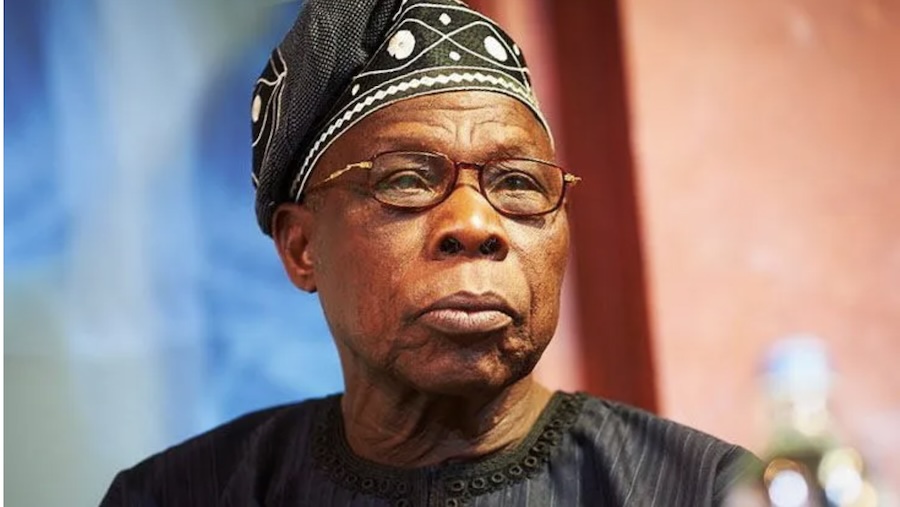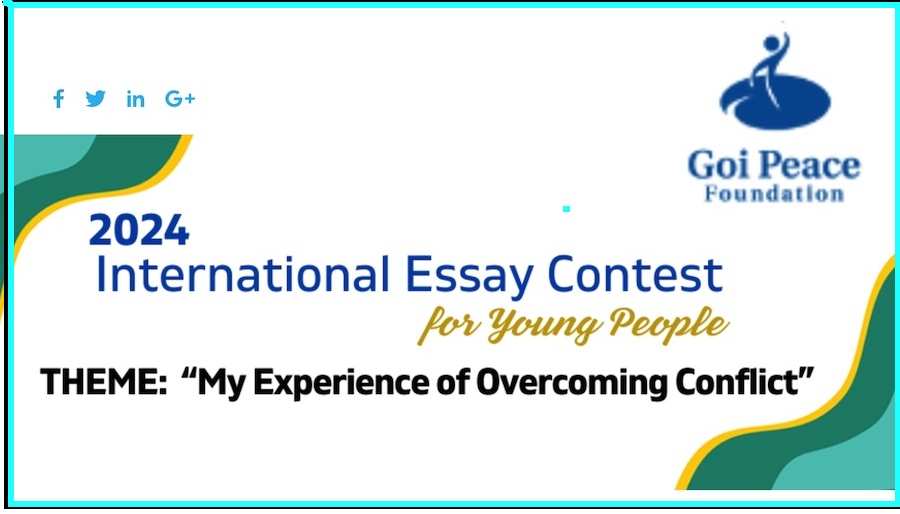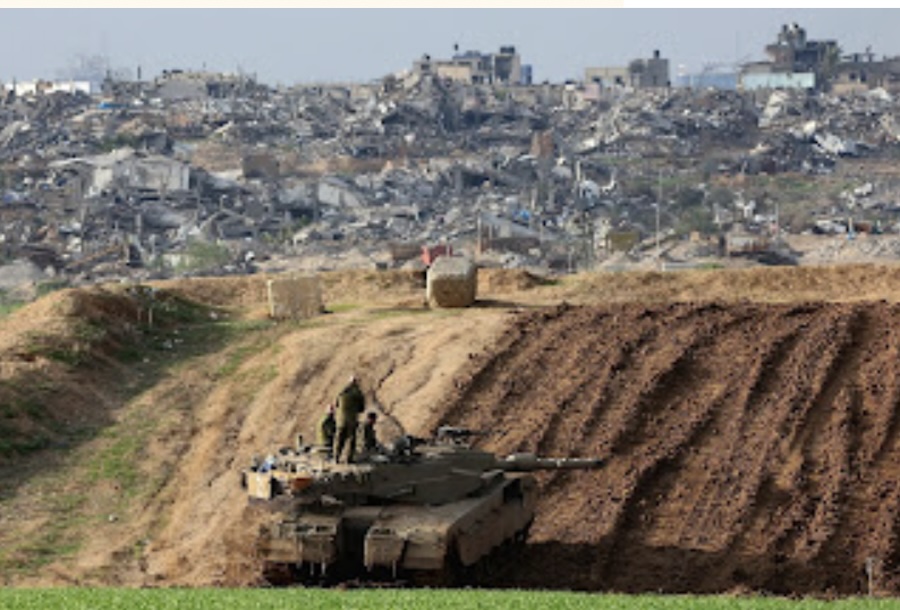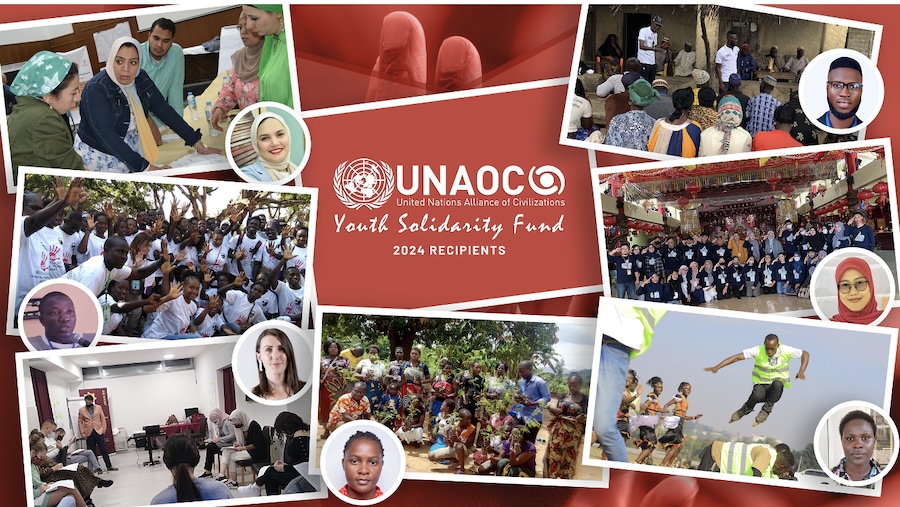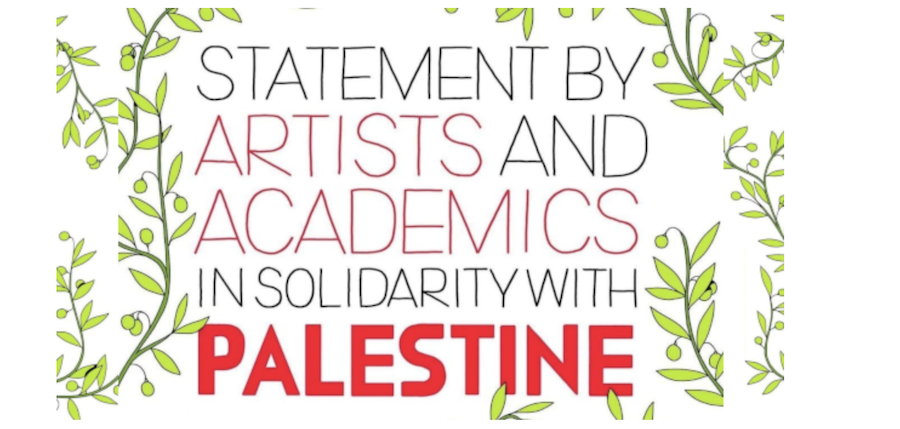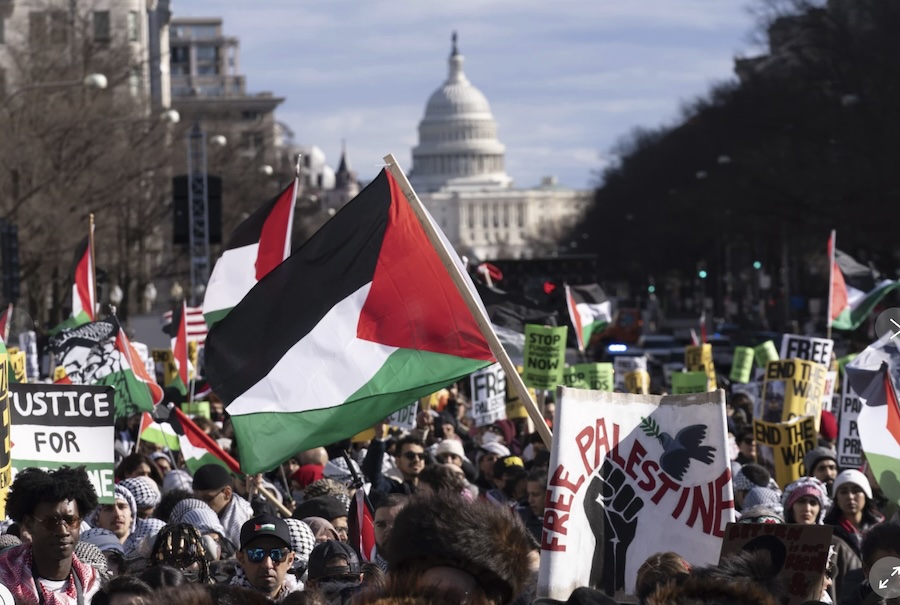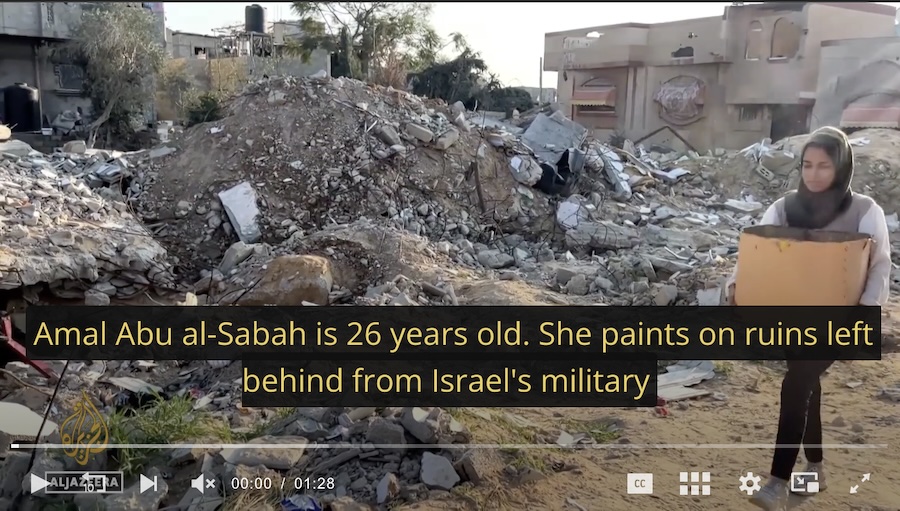. TOLERANCE AND SOLIDARITY . .
An article from El Watan
The hall of the Algiers Opera Boualem Bessaih, in Ouled Fayet, west of the capital, was packed on the evening of Saturday January 20, for the gala of solidarity with the Palestinians, Salam lel Falastine ( Peace for Palestine).
By noon on Thursday, January 18, 2024, all tickets have been sold out. I take my hat off to the Algerian artist who wanted this show to be unique in its kind. I also salute the immense promotional work done by the national press for this event. We were able to bring together 150 artists on stage, supported by sponsors who believed in the project, and by the Ministry of Culture and Arts,” declared Abdelkader Bouazzara, director of the Algiers Opera and organizer of the gala.
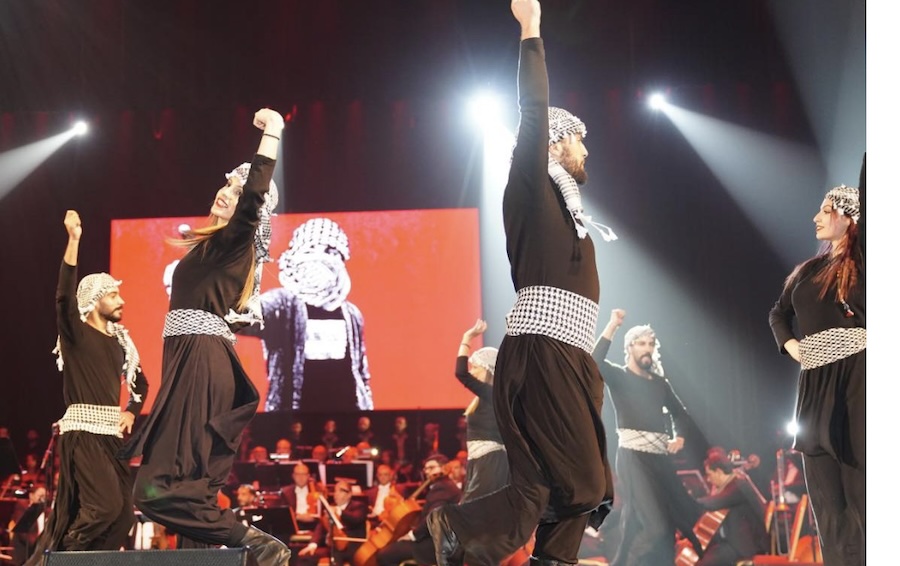
Proceeds from the evening will be donated entirely to the benefit of the Palestinian people.
The evening began with the Algerian and Palestinian national anthems performed by the Algiers Opera Symphony Orchestra. The college choir
Mamlakatou al tilmidh (The kingdom of children) from Ain Benian (Algiers) then performed
Beytouna el Qods (our house el Qods), based on music and words by Mustapha Alouane. Syrian maestro Missak Baghboudarian led the orchestra afterward to play the overture to
La forza del destino (The Force of Destiny), an opera composed by Italian Giuseppe Verdi at the request of Russian Tsar Alexander II in 1862 (seven years afterwards, the work was greatly revised by the composer). From another Verdi opera, composed ten years earlier, La traviata, soprano Dina Sirine Khiari masterfully performed the aria
Addio del passato (Farewell to the past).
“Take your hours out of our time, go away”
Covered in a dark burnous, the actor Hassan Kechache declaimed the famous poem by the Palestinian Mahmoud Darwish, Ayahou al maroun bayna el kalimat al abira (You who pass among the fleeting words), criticizing the Israeli occupation of Palestinian lands:
“You who pass among passing words. Take your names and leave. Take your hours out of our time, go away. Extort what you want, from the blue of the sky and the sand of memory. Take the photos you want, to know that you will not know how the stones of our earth build the roof of the sky.”
Led by Nadjib Kateb, the Andalusian Orchestra of the Algiers Opera performed in moual Filistine ya bladi (Palestine ô my country), sung by Lamia Madini, followed, in zidane style, to the tune of Qom tara, Seif el Quds, performed by Sarah Belaslouni, based on a poem by the Syrian Abdel Rahim Al Gamoudi. Hassan Kachach returned to the stage to declaim the lyric poem Ardha falestine (The land of Palestine), by the Algerian Mohamed Badji, then interpreted, in Chaâbi style, by Kosseila Ajrad.
This song was widely popularized by Amar Zahi. Less known, the song Asbaha indi el an boundoukia (I now have a rifle) was then sung by Asma Alla, accompanied by the Algiers Opera Symphony Orchestra, conducted by Lotfi Saïdi. Asbaha indi el an boundoukia is an epic style song performed as a duet in 1969 by Mohamed Abdelwahab and Oum Keltoum to a poem by Nizar Kabbani. The famous theme song of the Egyptian soap opera Raafat Al Haggan, composed by Amar Cherii, was then performed by the Symphony Orchestra conducted again by Missak Baghboudarian.
“If we are to have another gala for Palestine, we must repeat tonight’s gala in every detail. I am delighted that Algerian, Syrian and Tunisian artists came together to play classical music and Andalusian music with a children’s choir and singers. All the artists said their word for Palestine this evening. We have said our word to the world…,” confided the Syrian maestro.
(Click here for the French original of this article.)
(continued in right column)
Question related to this article:
Presenting the Palestinian side of the Middle East, Is it important for a culture of peace?
(continued from left column)
The flower of cities
He explained that the choice of La forza del destino is motivated by adopting a language that is addressed to the whole world, not just for audiences in the Arab region.
“For Rafaat Al Haggan’s music, we were young when the soap opera was broadcast. We all dreamed of becoming like him,” he said. Directed at the end of the 1980s by Yehia El Alami, Rafaat Al Haggan, this three-season series tells the story of an Egyptian spy who hit the headlines in Israel in the 1950s.
The dancers of the Opera Ballet from Algiers then performed a Palestinian dabke to the famous song by Mohamed Assaf, Ala ahdi ala dini. The stage was then given over to Maria Saïdi and Nourelhouda Ghanoumat to sing Chedou baathkoum ya ahl falestine, a song made famous by an old Palestinian Halima Kessouani, since killed by Israeli soldiers.
Zahratou al madayine (the flower of cities), the famous song of the Lebanese Fairouz, in homage to El Quds, was then taken up by Nada Rayhane, accompanied by the symphony orchestra and the choir of Algiers and Laghouat.
Dressed in a red dress covered with a white cape, Manel Gharbi then sang Sayfoun fel youchhar (Let a sword be exhibited) by Fayrouz, a song dating from 1967, the year of the Six Day War, before continuing with Win el malayine (Where are the millions?). Produced during the first Intifada in the Palestinian Territories in 1987, Win el malayine, written and composed by the Libyans Ali Al Kilani and Abdullah Muhammad Mansour, was performed as a trio by the Lebanese Julia Boutros, the Tunisian Sawsan Hammami and the Syrian Amal Arafa.
“The artist’s message always reaches the heart”
Manuel Gharbi said, “I am proud to have participated in this gala singing this style for the first time, usually I sing Andalusian. I like this style. We are proud as artists to have participated in this evening of solidarity with the Palestinian people. Algeria has always stood in solidarity with the Palestinians and the Palestinian cause. The fact remains that the solidarity of artists is always important. The artist’s message always reaches the heart. Even if the entries for this evening are symbolic, the fact of coming together and showing solidarity remains important. I hope that the voice of artists reaches everywhere in the world.” She has just produced a duet with Syrian singer Rasha Rizk, a song in tribute to Palestine, composed by Tarik Benouarka. Manel Gharbi wants the song’s video to be shot in Algeria.
The evening closed with a cover of the cantata Carmina Burana by German composer Carl Orff, translated into Arabic by Rabah Kadem, and sung by the choir of Algiers and Laghouat. A choir directed by Zouhir Mazari.
The conductor Lotfi Saïdi said, “I salute the public who came in force. It is a way of expressing support for the Palestinians. Proceeds from the evening will be donated entirely to the benefit of the Palestinian people. All the artists and institutions of the Algiers Opera took part in this gala. The artists fight in their own way, with music.”
Soraya Mouloudji, Minister of Culture and Arts, declared, for her part: “These international-level artistic works are all linked to the Palestinian cause. A national cause par excellence for Algeria, as underlined by the President of the Republic. Art does not exist solely for entertainment or joy, history has proven that often art is born out of pain and crisis. This evening, the voice of artists confronted obscurantism and the flagrant violation of human rights from which our Palestinian brothers suffer,” She praised “the great effort” made by Abdelkader Bouazzara, director of the Opera, to organize the show “in a short period of time”.
“We discussed the possibility of organizing similar galas after two or three months to express our solidarity with the Palestinian people,” she said.
For his part, Abdelkader Bouazzara announced that other shows will be organized at the Algiers Opera and did not rule out the possibility of a national tour.
The solidarity gala with Palestine was broadcast live on the Echababia channel (Channel 6) and will be broadcast afterwards on all the channels of the ENTV group (ex-RTA).
– – – – – –
If you wish to make a comment on this article, you may write to coordinator@cpnn-world.org with the title “Comment on Gala of Solidarity” and we will put your comment on line. Because of the flood of spam, we have discontinued the direct application of comments.
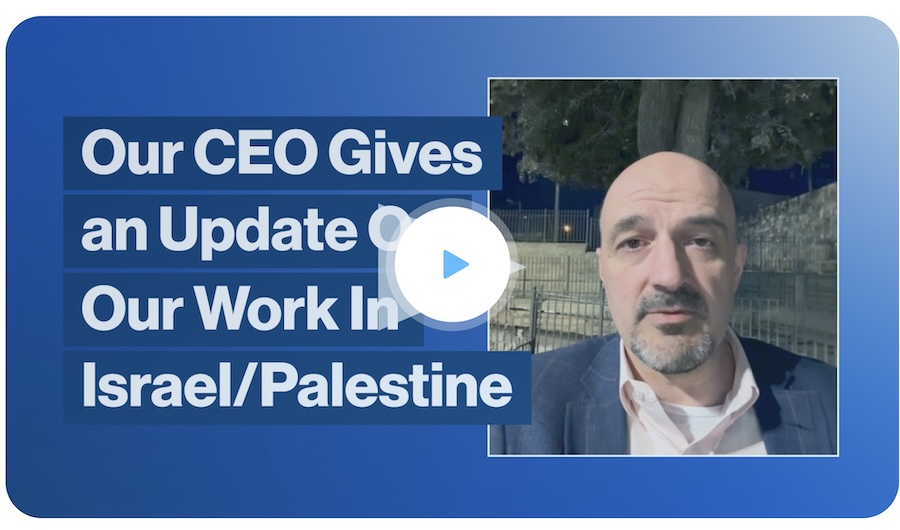 Video 5. Click on image to see the video
Video 5. Click on image to see the video